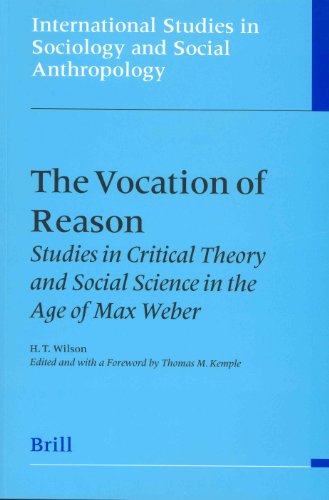

Most ebook files are in PDF format, so you can easily read them using various software such as Foxit Reader or directly on the Google Chrome browser.
Some ebook files are released by publishers in other formats such as .awz, .mobi, .epub, .fb2, etc. You may need to install specific software to read these formats on mobile/PC, such as Calibre.
Please read the tutorial at this link: https://ebookbell.com/faq
We offer FREE conversion to the popular formats you request; however, this may take some time. Therefore, right after payment, please email us, and we will try to provide the service as quickly as possible.
For some exceptional file formats or broken links (if any), please refrain from opening any disputes. Instead, email us first, and we will try to assist within a maximum of 6 hours.
EbookBell Team

4.1
70 reviews
ISBN 10: 9004136312
ISBN 13: 978-9004136311
Author: Hall Thomas Wilson, Thomas M. Kemple
This book addresses, and at the same time reflects, the impact of Max Weber on both the social sciences and on critical theory’s critique of the social sciences. Weber’s conception of ‘vocation’ is a guiding thread unifying concerns about the nature, scope and limits of theoretical thinking among social scientists, whether supportive or critical of Weber. Not surprisingly, the source of many of these concerns, whether intended or unintended, biographical or situational, is the ambiguous legacy of Weber himself. Wilson’s interrogation of Weber’s thought in articles and essays over the past 30 years, supplemented by Kemple’s insights, makes a strong case for the claim that we do indeed live in ‘the age of Weber’.
Chapter One Reading Max Weber: Critical Theory and the Limits of Sociology
Chapter Two Critical Theory in America, 1938–1978: A Case of Intellectual Innovation and its Reception
Chapter Three Critical Theory and Social Science: Episodes in a Changing Problematic from Adorno to Habermas
Chapter Four Functional Rationality and ‘Sense of Function’: Critical Comments on an Ideological Distortion
Chapter Five Use Value and Substantive Rationality: Marx and Weber on Dichotomization in Modern Social Theory
Chapter Six Technocracy as Late Capitalist Ideology: Between Spectre and Myth
Chapter Seven Communication, Deprivation and Mobilization: Notes on the Achievement of Communicative Action and Related Difficulties
Chapter Eight Science, Technology, and Innovation: Reflections on Capital and Common Sense
Chapter Nine Essential Process of Modernity: A Critical Analysis of Social Science Research Practices and an Alternative
Chapter Ten Time, Space and Value: Recovering the Public Sphere
the role of reason in critical thinking
the vocation of the catechist
theological studies and religious vocations
the study of reason
a critical introduction to the study of religion
Tags: Hall Thomas Wilson, Thomas Kemple, Vocation, Critical